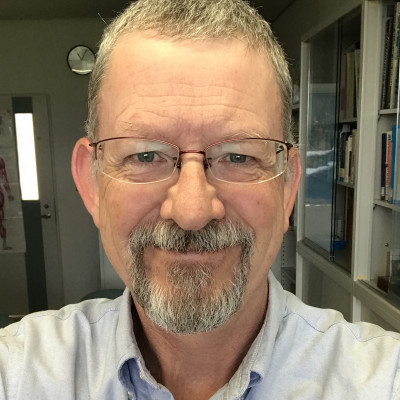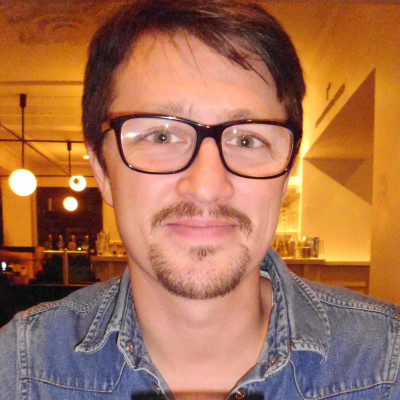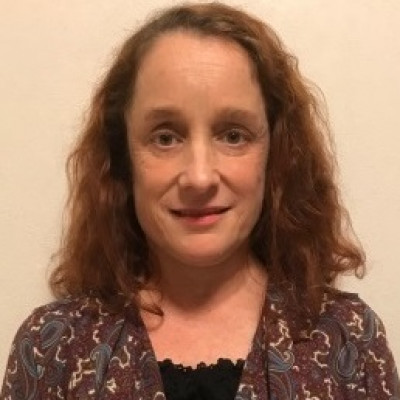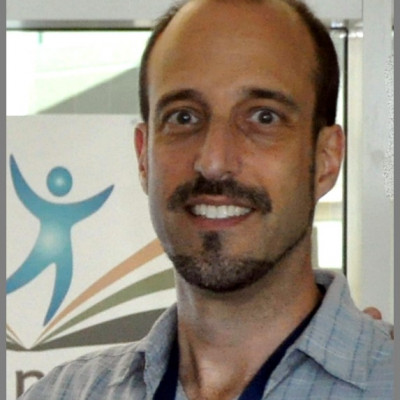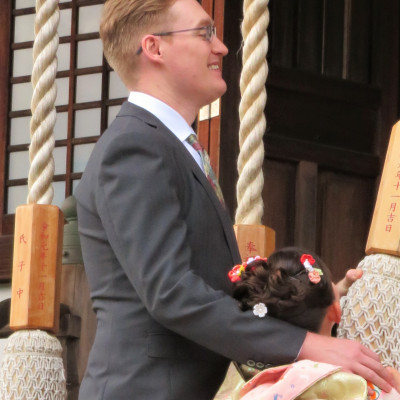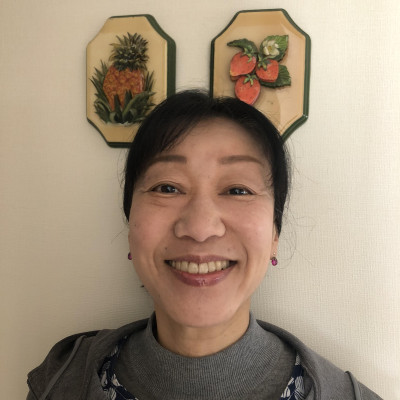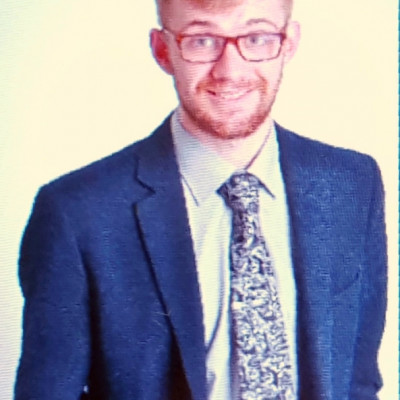Schedule Go Compact (displays all)
You can use Quick Lookup to quickly find sessions. But best is to use the LIVE SCHEDULE during the conference itself.
Help Desk & Lounge #2622
Come to this multipurpose room to: 1. Ask questions or get help. 2. Continue discussions after a presentation. Go to the Breakout Room that is the same as the Zoom Room that you were in! 3. Just hang out! Use any Breakout Room higher than Room 6.
Formulaic expressions in written compositions of Japanese EFL students - The effects of noticing #2564
Although formulaic expressions have been estimated to account for one-third to one-half of language production (Conklin & Schmitt, 2008), they have not had an important focus in English language teaching. Noticing, identified as a necessary step in language acquisition (Schmidt, 1990), has also not been paid the attention it deserves. This presentation first introduces formulaic expressions and the role of noticing in second language acquisition. Then the speaker reports on a study, conducted over ten sessions, that investigated the effects of noticing formulaic expressions (as identified in the readings) on their production in ten short, written compositions. Results will be provided on the production of two-, three-, or longer word strings by comparing data for the experimental and control groups.
From emails to business letters: Teacher explorations in learner autonomy and pragmatics #2565
Japanese university students typically have little knowledge or experience of writing emails or letters in English. Even short emails to teachers to apologize for an absence or to submit an assignment tend to be inadequate. Students in their final two years may need to be writing business letters as they approach the world of work, but this, too, they typically have not learned to do. This presentation will report on two explorations into student writing of emails and business letters in which the resources needed for writing were sourced and shared by the students on Google docs. Both explorations also addressed issues in pragmatics: choices regarding register, and expression in written communications of the speech acts of request, acceptance, and refusal.
10 Top Tips for Getting your Textbook Published (Sponsored Workshop) #2566
englishbooks.jp
Getting your amazing classroom materials published as a textbook is an achievement that has the potential to transform not only your professional life, but also – more importantly – the learning experiences of students. This presentation draws from the journey of an author/co-author of more than a dozen commercially published textbooks. It provides (at least) 10 tips that cover various stages of the development and publication process, tips that could help to enhance success at every stage of the book-birthing process, from conception to delivery – getting your foot in the door; finding your ‘gap’; establishing your principles; designing a scope and sequence; understanding your market; the best ways to fail; ensuring quality – and (if you’re lucky!), the final push; money matters, and post-publication promotion.
Pathetic—Emotion and expression in Japanese students’ English speeches #2567
Persuasive speeches seek to balance the expression of the speaker's ideas in a manner that is convincing to an audience. Japanese students orating in English must further accommodate their beliefs about performing their identities in the language—particularly the often-held conception that English is a more direct, more emotional language than Japanese. This in turn can lead to overcompensation and speeches that are overwrought and unpersuasive. The presenter will draw on ideas from classical and contrastive rhetoric, and a decade coaching and judging speech contests at the high school and university levels, to discuss how this tendency to over-emoting comes about and can be addressed. Practical advice will be offered on improving the balance, writing, and delivery of persuasive speeches.
Reconceptualising Online Teaching #2568
Due to the pandemic, in Japan many teachers have found themselves giving online classes. Some teachers may look at online teaching as a hindrance or fail to identify any enhancements to the learning process. In this presentation, the speaker will first establish the claim that there is a difference between being an online teacher and doing online teaching. This presentation will then introduce the use of a simple tool like breakout rooms in Zoom that can support online teaching. The speaker will also outline how breakout rooms can help teachers create an environment in which students are given space to foster their independent learning and understanding. This presentation illustrates how technological tools can be used to help rather than hinder the teaching process.
Teaching and the Teacher: Exploring Our Professional Life Cycle #2569
In this interactive session, participants will be invited to reflect on their own teaching career within the life cycle framework as proposed by Sikes (1985), Fessler (1985), and Huberman (1989; 2001). Using the five phases in Sikes' life cycle model and exploring the concepts of growth, challenges and transformation, participants will be encouraged to discuss their own journey as educators in pairs/groups. Finally, everyone will be asked to share their thoughts, opinions and comments with the whole group.
On Becoming an EFL Writing Teacher-Researcher #2570
This presentation investigates how an early career L2 writing teacher-researcher negotiates constraints and opportunities for professional development and identity construction. Utilizing an autoethnographic interpretive approach, the account reflects on the presenter’s MA TESOL program experience at a Japanese university while simultaneously working as an assistant professor in the Humanities department of another Japanese university. The presentation shares a self-reflexive analysis of how current EFL writing teacher education is situated in relation to dominant North American themes, trends, and pedagogical conceptions. Finally, the presentation offers insight into negotiating the challenges of becoming an L2 writing teacher-researcher in terms of professional development and identity formation by reaching out to the international L2 writing community, presenting and publishing research, and reflecting on notions of self-efficacy.
Developing a Successful Peer-Editing Program in the Writing Classroom #2571
The ability to plan, outline, and write an essay are invaluable to the language learner at the university level. Many writing programs also have students help each other develop their writing skills through the act of peer-editing. Unfortunately, not all writing programs invest the time and energy in training their students that is necessary to make peer-editing successful (Rollinson, 2005). This presentation will detail the implementation of a successful peer-editing system in a first-year writing course at a Japanese University. The presentation will begin by explaining the initial training the students undergo to prepare them for peer-editing. Then, the actual step-by-step process for conducting peer-editing will be clearly laid out. Finally, the student-to-student counseling sessions will be examined.
The Natural Approach to Language Teaching Based on Recent Research on Language and the Brain #2572
During the past 30 years Stephen Krashen’s major hypotheses have been largely discredited, especially his assertion that conscious learning does not lead to real language acquisition. Nevertheless, the Natural Approach continues to endure in the field of second language acquisition. This paper will argue that new research in neurobiology supports many of the claims of the Natural Approach. Whereas previously language was thought to be a function of the left hemisphere of the brain, new research shows that language involves both hemispheres and learning language is more akin to learning music and is embodied much like music. It will be argued that this and related research supports the fundamental assumptions of the Natural Approach.
Welcome to Cambridge One – The Brand New Online Learning Platform for All Age Groups (Sponsored Workshop) #2573
Cambridge University Press
Introducing the Cambridge One online learning platform - The all-in-one online English Language Learning platform for easy access to all teaching and learning materials across multiple devices including smartphones and tablets as well as on PCs for all age groups. This session will look at how Cambridge One lets you plan, present and assess student performance, all in the same place whilst also demonstrating the online learning components learners can fully access on their smartphones.
Zoom Chat with Teachers: Student Experiences in an Online Self-Access Lounge #2574
A major goal of self-access language lounges is to provide opportunities for learners to practice the target language in an informal environment. Zoom Chat with Teachers (ZCT) is a self-access conversation lounge that offers an opportunity for such practice. Known as English Chat Time (ECT) when conducted on the presenters’ campus, the pandemic has necessitated a shift to an online format, using Zoom. This presentation is part of a larger project that critically examines and aims to improve ZCT, tracking the program’s development since its inception as English Chat Time in 2010. The presenters will analyze the program focusing mainly from the students’ perspective, suggesting activities and ways to develop such programs even after face-to-face classes resume.
Language Learning Strategies of Diverse Senior High School Students #2575
Language learning requires various strategies to be successfully followed to obtain proficiency. This study aimed to ascertain how students actually learn, exploring six types of language learning strategies used by students in Davao City. This presentation will explain the differences in the frequency of strategy use across grade level and gender. The six learning strategies compared were metacognitive, social, cognitive, compensation, affective, and memory. The Proportional Cluster Random Sampling Technique was used for 500 respondents from 2,178 students. A two- way ANOVA analyzed any significant differences in the strategies used across grade level and gender. One of the main results implies that for those more exposed to English, metacognitive strategies are preferred, while those with less experience favor memory strategies.
Exploring Learners’ Pragmatic Competence in L2 Email Writing #2576
This study analyses university students’ pragmatic competence in a series of English email tasks. This study analyses 87 Japanese university students’ pragmatic competence in a series of English email tasks. The students were engaged in a series of L2 English email activities: 1) email rating task, 2) metapragmatic discussion, and 3) email writing task after instruction on composing emails. Data used for the present study come from the scores of email rating tasks, participants’ written observations, and email compositions. Findings show participants’ awareness of formal email structure after the instruction. Based on the findings, pedagogical implications regarding awareness-raising tasks for email composition will be discussed.
Using the Flipped Approach in English Speaking and Writing Courses Online at a Japanese University #2577
Due to Covid-19 pandemic, the use of technology for delivering classes and content has become increasingly important. The presenter will discuss the effects of technology-supported flipped learning for English language classes at a Japanese national university. In the study, questionnaires were completed by 149 students in the writing course and 193 students in the speaking course. Data analysis combined quantitative and qualitative methods to reveal how the flipped approach with a learning management system (LMS) supported students’ speaking and writing skills in an online learning environment. The findings suggest that LMS is a practical platform that allows improved communication with students and extended opportunities for learning. Finally, the presenter will give suggestions for using LMS in future hybrid classes.
Using Subtitles for Research and Classroom Activities #2578
Subtitles can be useful resources for researchers and instructors, especially in corpus linguistics and translation studies. However, with a wide variety of types and combinations, as well as the inherent problems that come with acquiring and implementing them, such as OCR misreadings and inaccuracy to the spoken dialogue, the barrier to entry for using them can seem steep. This presentation will lower that barrier by discussing how subtitles can be useful for language acquisition followed by a practical guide regarding how to obtain, prepare, and utilize them for research or teaching.
Xreading: now Extensive Reading AND Timed Reading (Sponsored Workshop) #2580
Xreading
One of the primary goals of extensive reading is to improve students’ reading fluency. However, recent research has shown that when students do extensive reading along with dedicated speed reading activities, such as timed readings, the positive impact on their reading fluency is greater than doing either one of those activities in isolation (Shimono, 2018). Therefore, Xreading, the extensive reading platform with over 1500 graded readers, has added a speed reading component. This component includes 66 short reading passages at three levels of difficulty. Students are encouraged to read each passage as fast as they can, and their reading speed is calculated and then displayed on a graph. In this session, the presenter will demonstrate the speed reading component and explain how it has been integrated into the rest of the system.
Case Study of Japanese Elementary School Teacher’s Talk and Self-Reflection #2581
To establish a basis for investigating teacher talk adjustment and self-reflection in teaching English, the presenter conducted a pilot study of an English lesson for a Japanese elementary school in Myanmar, taught online due to the Covid-19 pandemic by a female Japanese teacher. The study focused on the Small Talk section and was analyzed by using the IRF framework (Sinclair & Coulthard, 1975), teacher talk categories (Watanabe, Sakai & Urano, 1996), and SETT framework (Walsh, 2013), along with teacher’s self-reflection and interview data. The results show an interaction pattern of referential questions ending with either acknowledgement or form-focused feedback. The teacher’s self-reflection shows her concern for creating natural Small Talk conversation and how it connects to the lesson content.
Developing Writer Identity: Self-representation in L2 English Text #2582
Writers as agents project their identity in their texts in a variety of ways. The most direct way is by referring to themselves explicitly in their texts (e.g., “I/we,” “the author/researcher”). In this presentation, we share our recent research on self-representation in English and Japanese argumentation essays. By comparing the essays written by novice, intermediate, and advanced L1/L2 writers, we found a complex picture. Our analysis reveals that development of self-representation by L2 writers moves in a gradual, non-linear way from personal to more objective, nuanced, and implicit. The presentation focuses on changing uses of first-person pronouns (“I/my/we”) and opinion qualifiers (e.g., “I think”) in L2 English essays by Japanese writers, as compared with essays on the same topics by North American L1 English writers. The findings suggest strategies Japanese writers at various levels can adopt to represent themselves more confidently and appropriately in their L2 English writing.
Teaching ELT in Vietnam for NNESTs #2625
The demand for EFL instructors throughout Asia, particularly in Vietnam, has resulted in a major diaspora of non-native teachers. This study utilized a comprehensive semi-structured interview with 12 non-native English-speaking teacher-participants. The benefits of non-native English-speaking instructors in Vietnam were emphasized, including the strong demand for EFL Jobs, simpler hiring processing, and advancement possibilities. There were professional issues on discrimination and biases and racism experienced from companies and students. Despite the challenges, there were relevant suggestions shared to cope with the challenges such as getting qualified, adapting to culture, and possessing optimism towards teaching as non-native teacher in Vietnam.
Writer Agency and Transfer in Argumentative Essays #2626
This case study explores writer agency of the two Japanese students in composing their L1 Japanese argumentative essays, with a particular attention to the transfer from their L2 English knowledge and experiences. The analyses of their bilingual argumentative essays and interview data revealed that English knowledge and learning experiences can be the predicting factors to transfer from English to Japanese argumentative essays for the upper-intermediate English proficiency student. On the other hand, the intermediate English level student hardly showed the English writing transfer effects on her Japanese argumentative essay. Pedagogical implications are reported based on the results of the study.
An International Virtual Business Project : Our Collaboration #2627
This presentation introduces the two-month virtual business professional [VBP] team project that I participated in . The aim of this project is to have international students interact with each other to analyse the online presence of international companies. The VBP project includes academic articles, videos, and worksheets to prepare for online team meetings. I will focus on the flow of teamwork in this presentation. I found that achieving the goal with people from different countries can be difficult even if we have a common purpose. I will explain my experience using some data and my self-reflections.
The Listening Leader #2628
A voice has the power to raise awareness, but it is nothing without someone to listen to it. Many possibilities for change are opened by awareness, but without individuals taking action, it is meaningless. The role of pedagogical leaders in empowering students' voices in order to transform curriculum and school culture will be the subject of this presentation. Let's take on a journey with pedagogical leaders at an Indonesian private school as they begin to genuinely listen and act on what they've heard.
Gateways to Developing an Identity in Writing Academic Publications: Book Reviews, Conference Reports, & Interviews #2583
Educators are expected to demonstrate professional development and ongoing learning. Writing for publication and experiencing peer feedback can consolidate one’s professional knowledge and help build identity. The summary and critique in book reviews, the narration and reflection in conference reports, and the informed interaction in interviews provide initial access to an academic discourse community. This presentation looks at these three gateway publications available for all teachers to develop their identity as authors of academic publications. Workshop activities cover the structure of these genres with samples. Participants will take away a deeper understanding of writing for publication and some targets for their gateway submissions along with the added motivation to grow further through their writing within a supportive learning community.
Breaking a Mandatory Connection Between Japanese and English: shared narrative development as immersion #2584
Hiroshima's Historiographers
For the past four years, the Hiroshima’s Historiographers group has met weekly to read together texts related to San’yō Rai’s legacy. This workshop will share the results of those meetings, both in terms of pedagogical methodology and content. Once a household name in Japan, San’yō’s history of the Japanese Samurai houses became the first Japanese text to achieve the status of world literature, having been translated into several languages before The Tale of Genji. As a thread, Sany’yō’s legacy provides access to Anglophone academic journals and monographs, which in turn provide an ideal medium for Anglophone immersion. This immersion serves as an antidote to grammar translation heuristics, as the necessity to code switch etiolates due to the nature of the content.
A case study using Google Applications in EFL settings #2585
In EFL teaching, the main goal for learners is to be able to communicate with many people. Tragant et al. (2020) and Ozaki (2010, 2011) argue that many learners have limited opportunities to use English outside of the classroom. According to Hagley (2020), “EFL often became an academic activity with few chances to use English in real-world communicative events”. To address this problem, this study examined whether two different types of social network communications have the potential to promote “real-world communication” in a university context. The results indicated that online interaction can contribute not only to improving students’ language skills but also to promote authentic language use outside EFL classrooms.
Get Students Speaking Anytime, Anywhere (Sponsored Workshop) #2586
Oxford University Press
Are you teaching in-class, online, or a mixture of both? What will happen in the next few months? In an unpredictable situation, many educators are looking for agile ideas which can be applied to a variety of contexts. This workshop will focus on effective materials and techniques for developing students’ speaking skills which can be used for face-to-face, remote or hybrid learning and for independent study.
Leveraging Identity in Writing Instruction #2587
Identity is an integral part of communication. Yet, in language and writing instruction, we tend to assume generic identity positions, such as the teacher, student, academic writers, and intelligent bystander. The goal of this presentation is to complicate the notion of identity by discussing how identity plays a role in the construction, negotiation, and use of discourse—especially written discourse. We will then discuss how the awareness of and strategies for constructing and negotiating identity can enhance students’ ability to engage with language and writing activities. We will also consider the role of teacher identity and how it can facilitate instructional practices.
Multiple Identities and Choices Outside the English Academic Writing Classroom #2588
This presentation considers the multiple identities which shape learners’ choices as they write, revise, and seek support about writing assignments outside the classroom. Data are drawn from a one-year qualitative study of the out-of-class academic English writing practices and social relationships of seven first-year university students in Japan. Identities described include those within their EAP programme (e.g., programme member, “Advanced EAP class” member) and outside it (e.g., hometown friend, extracurricular club member). The presenter will discuss how identities influenced participants’ choices. These choices included forming study groups to work on writing, meeting to discuss a peer’s feedback, comparing writing with others’, or, conversely, discounting peers as sources of writing advice. Implications for teachers of writing will also be addressed.
Telling Stories: Whys and a Few Hows #2589
Stories can be a powerful tool, not only for learning but also for helping our learners, whatever their age, to relate to a foreign language and incorporate experiences they have had the language into their identity. The presenter will first explain why stories are so powerful: their strength in evoking emotion; their ability to connect storyteller and audience; and their crucial role in helping the learner to find and internalize patterns in foreign language experiences. He will then share, and solicit, ideas for incorporating the power of stories into writing and other lessons.
Explaining your Culture – This is Japan (Sponsored Workshop) #2590
National Geographic Learning
Most textbooks that focus on intercultural communication tend to emphasize learning about the ‘other’ or ‘foreign’ culture. But intercultural communication is a two-way street and the importance of understanding and explaining our own culture is often overlooked. Language learners hoping to make international friends, to take part in homestay programmes, or to work in an international environment need to understand their own culture, and be able to explain it. This presentation introduces engaging and practical communication activities from This is Japan, a textbook that develops learners’ abilities to explain their own culture and lifestyle.
The Influence of Student Autonomy, Self-Efficacy, and Language Preferences on WTC in a Foreign Language #2591
EFL learners must use their second language to learn but are often unwilling to communicate. Do learner autonomy, self-efficacy, and student preferences for instructional language influence student willingness to communicate (WTC)? Teachers promoted autonomous study with language-learning strategies and self-reports (Ochi, 2018) and self-efficacy with mind maps and translation, with debates as the communication goal. Participants (n=100) from first- and second-year EFL university classes in Western Japan completed questionnaires at the beginning, middle, and end of two 15-week terms. Findings revealed autonomy and self-efficacy were positively correlated with WTC throughout each term. Alternatively, student preferences for Japanese support were negatively correlated with, but later ceased to interfere with learner autonomy, self-efficacy, and WTC. The researchers will discuss findings and teaching recommendations.
LINE Messenger as a Learning Tool for the Classroom #2592
The presenter proposes a preliminary guide on using the LINE application as a viable and effective supplementary tool for learning English in the language classroom. The underlying reasons for the effectiveness of LINE are its availability, ease of use, and communicative features such as sending messages, group chat, and video calling. We will discuss how LINE can be used as a learning management system, lecture tool, and as a way to facilitate English activities for different learner types and ability levels. Several example activities that cover all four skills ( speaking, listening, writing, reading ) will be presented along with their implications for the wired or tech classroom.
L2 learners’ emergent academic identity construction: an exploratory investigation into their writing assignments #2593
L2 learners need both academic reading and writing for university assignments, such as summaries, discussions, and argumentative papers. For a summary and discussion assignment, L2 learners read a text, summarize the author’s argument, and evaluate it critically, presenting their viewpoints as academic writers. Learners are encouraged to develop their academic identity through their awareness of reader-writer relationships, academic conventions, and genre. To date, little research has explored the theme of L2 learners’ academic identity development through reading-to-write assignments. The author investigated 23 L2 students’ reflective writing on their summary and discussion assignments in university academic English courses. The author presents the results from selected students, which illustrate their awareness of reader-writer relationships and emergent academic identities.
Project Based Learning (PBL) courses for non-English majors at university: Development and implementation #2594
Project Based Learning (PBL) has been shown to be effective to encourage student motivation and engagement (Savery, 2006). PBL asks learners to complete projects in the target language, providing the opportunity to experience the language in a natural and practical context, related to their educational and professional needs and goals (Willis, 1998). However, PBL development and implementation can be challenging. In this session, the presenter will offer a working definition of PBL, outline a project-based course used for non-English majors at university, and discuss how practical issues such as classroom and time management, grading, evaluation and syllabus design can be addressed. The presenter will also share classroom techniques and approaches that have been effective for classes.
QSSSA: A Conversational Scaffolding Strategy for Online Learning #2595
The shift to online learning necessitated by COVID-19 compels instructors to think creatively and strategically about how to scaffold instruction to maximize student participation and output. Navigating online platforms places significant cognitive and linguistic demands on second and foreign language learners. As compared to face-to-face settings, teaching online requires an even greater degree of scaffolding to facilitate meaningful learner participation. This presentation demonstrates how the structured conversational format QSSSA (Question-Signal-Stem-Share-Assess)—which synthesizes cognitive, procedural, and verbal scaffolding—can be adapted to an online format to increase student output through collaborative learning. The presenter also considers how the QSSSA format can be differentiated based on the learners' level.
Student Video Projects with Adobe Spark Video #2596
Videos can be fun for students of all ages to make and are a great way to show off their English. Most video software is complex and has a steep learning curve. However, Adobe Spark Video is a simple, free application that can be used on any device to easily create videos. Teachers and students can focus on content and language without spending a lot of time on how to use the software. In this workshop, the presenter will discuss different ways to use the software and show how to create a video. Bring a device with Spark Video installed to start creating your own video, or come and join the discussion and see how to use it.
A Workshop proposal on CALL teaching techniques #2597
Developing computer presentation and project-related skills for Japanese university students through Project-Based Learning (PBL) can foster learner motivation and enhance authentic language building in an EFL environment. Murray and Blyth (2011) claim that Japanese students have limited exposure to various forms of information and Communication Technology throughout their educational careers, including basic word-processing, spreadsheet creation and calculation, and presentation skills. University CALL instructors face the additional challenge of scaffolding foreign language learning in these skills. In this workshop, the presenter will demonstrate some fun and practical Microsoft Word, Excel, and PowerPoint techniques to foster writing, business English, and presentation skills, such as MS Word poster map creation. The main focus will be on Excel calculation and conditional formatting skills.
A Model for Success: An English Camp Experience #2579
A tremendous amount of research has been devoted to understanding reticence in the EFL classroom. This presentation will highlight some of the major factors in the traditional Japanese education system that inhibit students from being more active in the English-language classroom. Following this, the presenters will outline the development and implementation of a two-day English camp that has proven to be very successful in preparing university students to become more active learners. Through group activities, including sports and cultural experiences, this camp has shown to help students understand the importance of cooperation and promote the development of empathy towards people from other cultures while at the same time greatly reduce anxiety.
An Online Practice for L2 Source-based Writing #2598
Incorporating sources into their writing is challenging for Japanese university students due to their limited English writing proficiency and a lack of academic writing training even in Japanese. Teachers need to help the students locate, connect, and integrate information source texts into their writing step-by-step (Zhang, 2013). This presentation reports on an online classroom practice that was aimed to develop rhetoric, linguistic, and critical thinking skills to facilitate English source-based writing. Specifically, the presenter will introduce a verbal reasoning task that her students worked on collaboratively online. She will also report on pedagogical implications for L2 source-based writing instruction, followed by students’ reflections on their online activity.
Hiroshima's Messengers of Peace; On Practical Performative Identity and Student Motivation #2599
Hiroshima City has been working to establish itself as a messenger of peace within international cultural memory. One of the City’s expressed goals is to promote and share a message of peace with other cities around the world. In the 2020-2030 Hiroshima City Plan, they explain this goal as, “…Foster[ing] human resources who can put ideas and methods for building/maintaining peace out into the world” (p. 7). As such, Hiroshima City students are taught from a young age to perform a peace messenger identity for this purpose. In this presentation, performative identity is defined and its practical application in the ESL classroom is explored. Through encouraging the identity, “messenger of peace”, L2 student motivation and abilities improve.
Conditions and Challenges of Implementing an e-Book Platform at a Technical College Library #2600
This presentation reports on the implementation of an e-book platform to support remote learning and encourage extensive reading activities at a technical college in Japan. Even though the college requires students to read graded readers in the library during class time, books are rarely checked out for out-of-class reading. Because classes were conducted remotely for much of 2020, an e-book platform was introduced in 2021 as students had no access to the campus library. Over one semester of operation, results of student surveys revealed that while they acknowledge some of the merits of e-books, such as convenience, most students did not read them. This presentation will discuss some of the findings and challenges of the e-book library.
Motivating Factors in Japanese University EFL Students: A Mixed Method Approach #2601
This presentation reports on an investigation of ESL/EFL learning motivation focusing on two factors: instrumental motivation and integrative motivation. The research design followed a mixed-method, two-phase exploratory approach to collect data from students at 4-year universities (private and public) in Hiroshima, Japan. For the quantitative data, this study utilized a 14-item questionnaire that was adapted from Gardner (see Zanghar, 2012). For the qualitative analysis, semi-structured interviews were conducted, which asked 17 open questions (designed by the author) to elicit more details on their ESL/EFL experiences. The presenter will explain the results and discuss the Japanese attitudes towards ESL/EFL learning and motivation.
Closing Ceremony #2623
Come and share your final thoughts about the conference!


